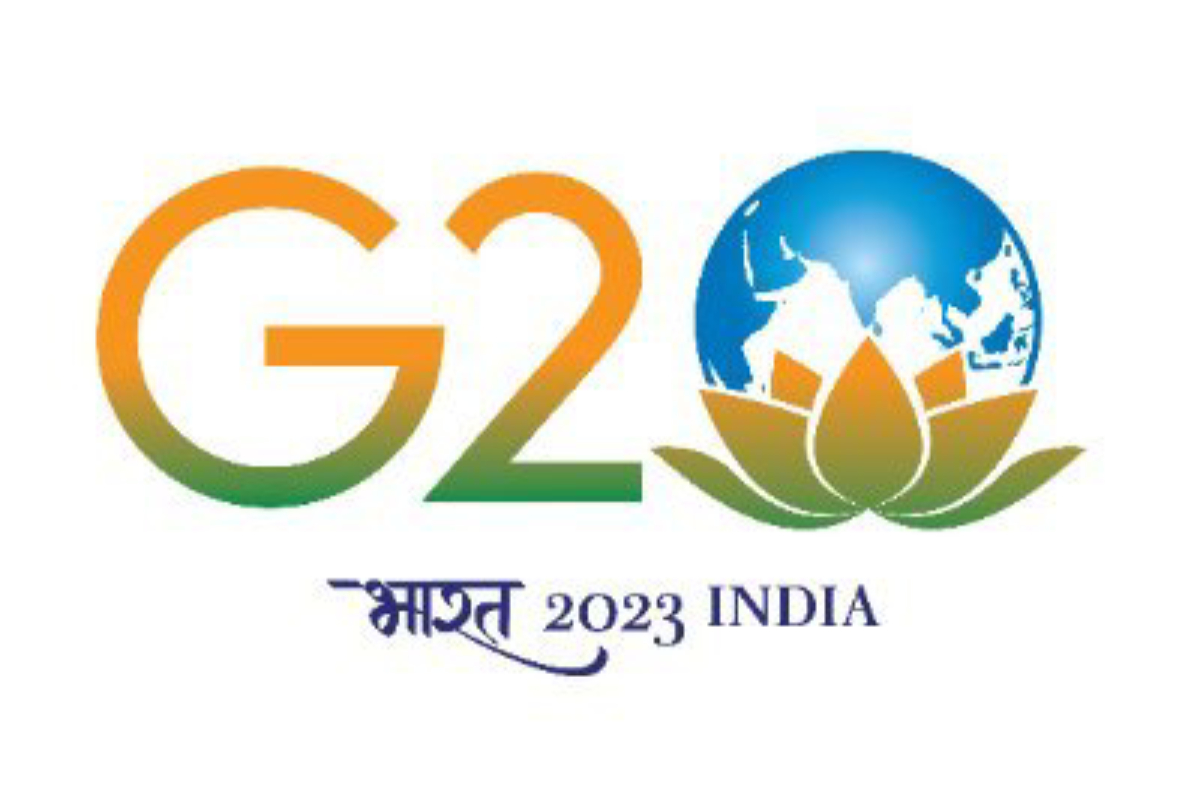Avid Learning to amplify voices of cultural sustainability and environmental innovation at COP28
As India completes its G20 Presidency, it has demonstrated its unwavering commitment to sustainable energy solutions and climate action.
India’s G20 presidency inclusive pan-India approach, centred on Jan Bhagidari or citizen’s engagement has so far covered over 41 cities, with around a dozen meetings held in the North Eastern part of the country.

G20 [Photo: Twitter/@g20org]
India on Monday with its inclusive and action-oriented policy processes at the heart of its agenda celebrated a key milestone of hosting its 100th meeting under its G20 Presidency with the meeting of Agricultural Chief Scientists (MACS) in Varanasi.
The G20, or Group of Twenty, is an intergovernmental forum of the world’s 20 major developed and developing economies, making it the premier forum for international economic cooperation. With more than 12,300 delegates from over 110 nations, the in-person participation in India’s G20 Presidency is the largest ever hosted by any G20 country so far. Throughout India’s Presidency, more than 200 meetings in around 60 cities across India are still being planned, making it the widest geographical spread.
India’s G20 presidency inclusive pan-India approach, centred on Jan Bhagidari or citizen’s engagement has so far covered over 41 cities, with around a dozen meetings held in the North Eastern part of the country. The meetings have also been successful in showcasing India’s incredible natural and architectural beauty through excursions, side events and more than 1500 cultural events with around 7000 artists performing.
Advertisement
The meetings include Agricultural Chief Scientists (MACS) in Varanasi, the second Health Working Group in Goa, the 2nd Digital Economy Working Group in Hyderabad and the Space Economy Leaders’ Precursor Meeting in Shillong which is being held on Monday.
With the first Finance Ministers and Central Bank Governors Meeting (FMCBG) in Bengaluru on February 24-25, the G20 Foreign Ministers Meeting (FMM) in New Delhi on March 1-3, and the second FMCBG meeting in Washington on April 12-13, three ministerial meetings have been held till date under India as G20 Chair along with the two Sherpa Meetings in Udaipur from December 4-7 December last year and Kumarakom from March 30 – April 2.
28 Foreign Ministers (from 18 G20 members, 9 guest countries and AU Chai- Comoros) and two Deputy/Vice Foreign Ministers (from Japan and the Republic of Korea) attended the FMM. These Ministerial meetings concluded with substantive outcome documents that fostered consensus on G20’s shared priorities.
These include consensus on setting up of an expert group on MDB reforms and on debt treatment in the 1st FMCBG, and on multilateral reforms, development cooperation, food and energy security, counter-terrorism, new and emerging threats, global skill mapping and disaster risk reduction in the FMM.
Showcasing India’s diversity, traditions and culture also remains an integral part of the visiting delegates’ programme. With Millet-based dishes being incorporated into the menu, a wide range of cultural performances and excursions have been organized.
The impact of India’s G20 Presidency gave a boost for Covid-hit sectors, a surge in demand for operators, guides and drivers in terms of boosting tourism, and also giving a boost to small businesses that brought global buyers at sellers’ doorstops.
India’s ongoing G20 Presidency comprise broad priority areas such as inclusive and resilient growth; progress on SDGs, green development and Lifestyle for Environment (LiFE); technological transformation and public digital infrastructure; reforming multilateral institutions; women-led development; and international peace and harmony.
India during its G20 presidency will host the largest-ever contingent of delegations in the final New Delhi Summit that will take place in September. Taking the baton from Indonesia, India’s year-long Presidency of the grouping commenced on 1 December 2022, and would continue until 30 November 2023.
On November 8, 2022, Prime Minister Narendra Modi launched the G20 logo and unveiled India’s G20 Presidency theme – “Vasudhaiva Kutumbakam”- “One Earth. One Family. One Future”.
The G20, or Group of Twenty, is an intergovernmental forum of the world’s major developed and developing economies. It comprises 19 countries – Argentina, Australia, Brazil, Canada, China, France, Germany, India, Indonesia, Italy, Japan, the Republic of Korea, Mexico, Russia, Saudi Arabia, South Africa, Turkey, the UK, US and the European Union (EU).
Collectively, the G20 accounts for 85 per cent of global GDP, 75 pc of international trade and two-thirds of the world population, making it the premier forum for international economic cooperation.
Advertisement